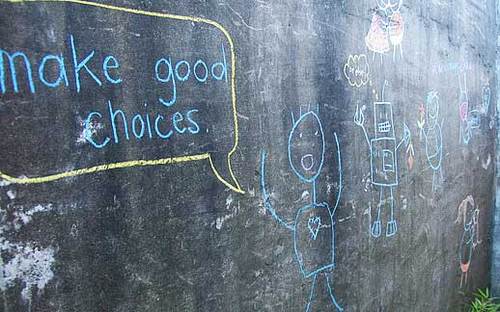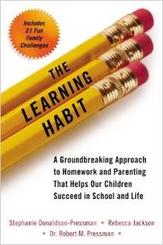
In the United States, at least 36% of school-aged children will not attempt a difficult or strenuous task. Furthermore, parents report that these children will quit tasks that are challenging "most or all of the time." In countries with more rigorous standards than those currently imposed by the United States, parents' report that children are far less likely to quit.
How can we stop our country from raising a generation of quitters?
The research "super-study" with nearly 50,000 participants conducted by Brown University's School of Medicine, Brandeis University, National Children's Medical Center and New England Center for Pediatric Psychology. The study identified three components of parenting style that affected whether or not children would quit a task that was strenuous or difficult.
The new parenting model is a "hybrid" philosophy called "Empowerment Parenting" and it might just help us raise an entire generation of successful students.
Three core tenets of Empowerment Parenting
1. Building habits through rules
When I hear the word "rules" two thoughts simultaneously pop into my mind: boring and rigid. The idea of building habits through rules sounds stern and slightly primeval to me. However, Empowerment Parents use the term "rules" more like I use the word "agreement." In these households, rules are in place so that children and adults have clear, respectful agreements in place.
Contrary to traditional parenting methods, the children who were given structured routines or frameworks for activities such as homework outperformed their peers. They devoted the same amount of time each day to an academic endeavor, as the purpose was to learn - not necessarily to complete an assignment. These children learned to work more efficiently since they understood that they were only permitted a certain amount of time for homework.
Research shows that consistently enforced limits help to create a feeling of safety and security in children.
2. Empowering children through choices

It's really hard to allow your child do something that, you believe, is going to cause needless discomfort or embarrassment. We've all been there: Imagine it's raining and the choice is between wearing a raincoat or getting wet. Yet on this rainy day, your child insists that the raincoat is ugly or uncomfortable and - for whatever seemingly strange reason - refuses to wear it.
Traditional parenting methods would indicate that a parent insist that their child wear the raincoat.
Surprisingly, allowing a child to make a choice (in this scenario the choice would be "Dry and ugly" Verses "Wet and not-ugly") will increase the likelihood that a child will learn to make appropriate choices.
Perhaps not today...but certainly the next time. Conversely, forcing them to do something without giving them an opportunity to internalize their choice is essentially useless. It may make parents feel better, but it has a negative correlation with learning and success.
This is hard.
It's really hard knowing that other people are watching and judging your parenting--probably not in very flattering terms. Parents who use empowerment methods are not afraid to let their children make mistakes, because they understand that this is how we learn. Children are neither rescued from their errors in judgment (think helicopter parent) nor condemned for them; they are supported in learning from them. They are establishing the learning habit.
3. Encouraging children through effort-based praise.
How can we stop our children from quitting when things get hard? How can we expect them to comply with a school assignment if they don't understand it? The answer, within the Empowerment Parenting model, is to praise our children for their hard work and effort.
Remember, this is not a race to the top.
Perhaps the finest way we can help them to become lifelong learners is to convince them that we value their persistence and trying hard, regardless of the short-term outcome. The focus in Empowerment Parenting is on the larger narrative.
Researchers and clinicians have noticed a single type of praise that is almost magical in its positive, lifelong effects on children. Praise for trying something new. The method is simple but strategic.
Children are encouraged to take a reasonable risk and try something new; they are then praised only for trying the new task. I have seen tremendous changes in behavior, self-esteem, and the development of respect and empathy. It doesn't matter if the task, game, or concept is perfectly executed; it matters that the child feels good about trying. That way, they'll continue to participate.
Children who keep trying are the ones who will eventually succeed.

(The Learning Habit, Perigee Books)
© 2014 Rebecca Jackson
RESEARCH: The Learning Habit had nearly 50,000 parents participate, and hundreds of case studies thanks to outreach efforts by WebMD, The Huffington Post, Parents Magazine, and The National PTA.
LEARN MORE: More information on Empowerment Parenting
